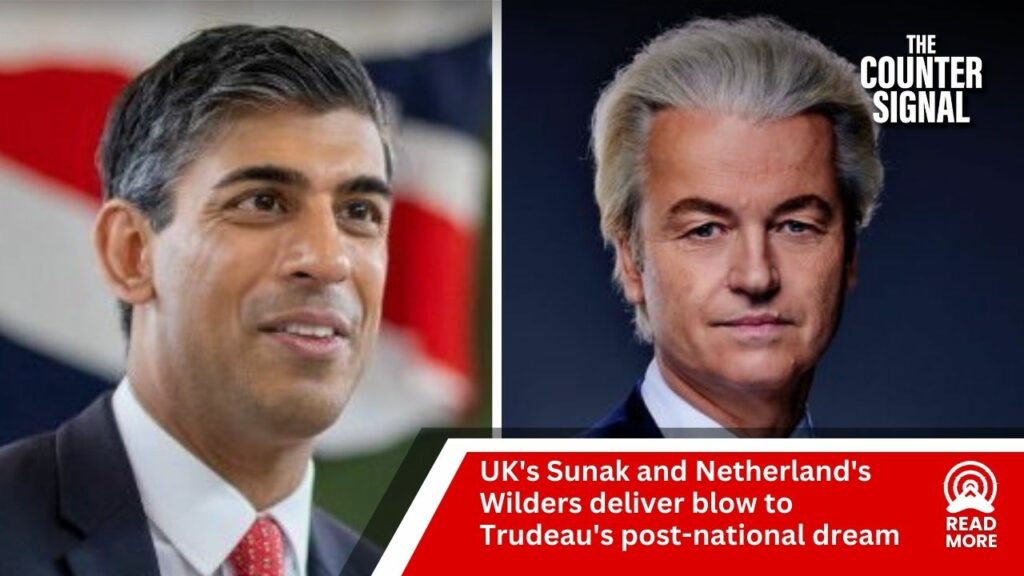With the United Kingdom’s Prime Minister Rishi Sunak announcing a crackdown on immigration and the recent win by Netherlands prime ministerial candidate Geert Wilders, the globalist open borders consensus is crumbling.

Prime Minister Justin Trudeau’s vision of a “post-national state” for Canada is now facing the harsh reality of a popular reaction to mass immigration.
On Monday, Sunak revealed plans to significantly reduce the number of migrants arriving through legal routes, simultaneously raising the minimum salary requirements for skilled jobs. It’s a part of his Tory government’s commitment to prioritizing the needs of the nation over maintaining an unsustainable influx of immigrants.
Across the North Sea, in the Netherlands, Wilders is advocating for even stricter immigration controls on the heels of a victory that could see him leading a coalition government.
In contrast to his predecessor and Trudeau’s close ally, former prime minister Mark Rutte, Wilders is calling for a complete halt to asylum grants and the deportation of individuals found guilty of criminal offenses.
Leaders who protect national interests are dominating elections
It is yet another proporal to emerge out of Europe that reflects a renewed determination to protect national interests over globalist greed – a sentiment that’s increasingly appealing to an ever-larger number of citizens.
These policies, loved by ordinary people are often derided by Liberal elites and their sympathizers in the mainstream media. Globalist financiers like George and Alexander Soros of the Open Society and others who have long bankrolled open borders initiatives across the West are also not happy.
The pushback against elite-dominated policy could mark a re-alignment for the world. As the winds of change sweep through traditional allies, Canada must confront its own immigration consensus.
People are starting to question mass immigration
Historically, both Liberal and Conservative parties have agreed on the necessity of perpetually increasing immigration levels. However, recent polls indicate a shift in public sentiment. The latest Leger survey, for instance, reveals that 75% of Canadians believe that record immigration targets are contributing to housing affordability and the healthcare crisis.
The question arises: How long can Canada afford to remain out of step with the evolving global landscape?
It is imperative that the nation addresses these concerns and introduces a new immigration equation that prioritizes the long-term sustainability of Canada over the bank accounts of a select few.
National realism, rather than utopian ideals, should guide Canada’s immigration policies into the prosperous future.








